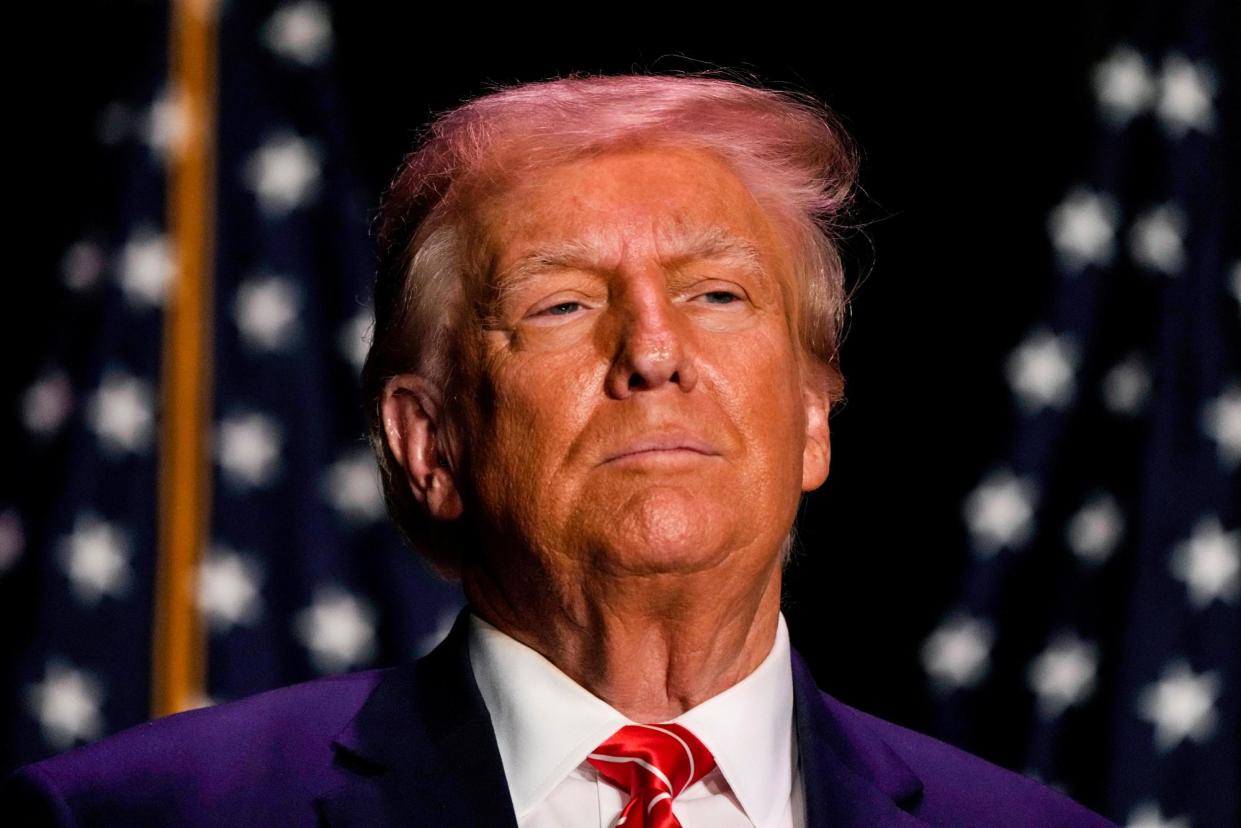Appeals court denies Trump’s immunity claims in election interference case

- Oops!Something went wrong.Please try again later.
A federal appeals court on Tuesday rejected Donald Trump’s claim that he is immune from criminal prosecution on charges that he plotted to overturn the 2020 election results because it involved actions he took while president, declining to endorse such an expansive interpretation of executive power.
Related: Over half of US wants Trump election subversion verdict before November, poll says
The decision by a three-judge panel at the US court of appeals for the DC circuit also categorically rejected Trump’s position that he could only be prosecuted if he had been convicted in a Senate impeachment trial first.
“We cannot accept former President Trump’s claim that a President has unbounded authority to commit crimes that would neutralize the most fundamental check on executive power,” the unsigned but unanimous opinion from the three-judge panel said.
“At bottom, former President Trump’s stance would collapse our system of separated powers by placing the President beyond the reach of all three Branches,” the opinion said. “We cannot accept that the office of the Presidency places its former occupants above the law for all time thereafter.”
The panel gave Trump until 12 February to inform the DC circuit that he will seek a stay of the decision – which would otherwise resume pre-trial proceedings – by appealing to the US supreme court. Should he appeal, the case would not return to the presiding US district judge Tanya Chutkan until the supreme court issues a final decision.
Last year, Trump filed a motion to dismiss the federal election interference case brought by the special counsel Jack Smith, which charged the former president with seeking to reverse his 2020 election defeat, including by advancing fake electors and obstructing Congress on 6 January 2021.
The motion was rejected by the trial judge, prompting Trump to appeal to the DC circuit. The special counsel sought to bypass the potentially lengthy appeals process by asking the US supreme court to directly resolve the matter, but the nation’s highest court returned the case to the appeals court.
Trump’s defeat was largely expected after his appellate lawyer, John Sauer, consistently found himself on the defensive when he argued at oral arguments last month before the three-judge panel of Michelle Childs, Karen Henderson and Florence Pan.
At the hearing, Sauer was forced to contend with an incredulous Pan who noted that Trump’s interpretation would mean presidents could hypothetically self-pardon, sell military secrets or order the assassinations of political rivals and never have to face criminal accountability.
The panel also questioned whether Trump’s position in 2024 was a reversal from 2021 at his second impeachment trial, when his then lawyers urged the Senate to acquit him because the justice department should decide if Trump engaged in insurrection over the January 6 Capitol attack.
The attempt by Trump to toss the criminal charges on presidential immunity grounds has been consequential not so much because his lawyers believed they would succeed in actually dismissing the indictment, but because they recognized it was a way to potentially delay his trial date by months.
Trump has made no secret of the fact that his overarching legal strategy is to seek delays, because if he were to win the 2024 presidential election in November and the trial had not yet started or had not been completed, he could appoint as the attorney general a loyalist who would drop the charges against him.
And even if Trump failed to delay the trial until after the election, his preference is for them to occur as close to election day as possible because he could use that as political ammunition to claim the charges were political in nature, according to people familiar with Trump’s strategy.

